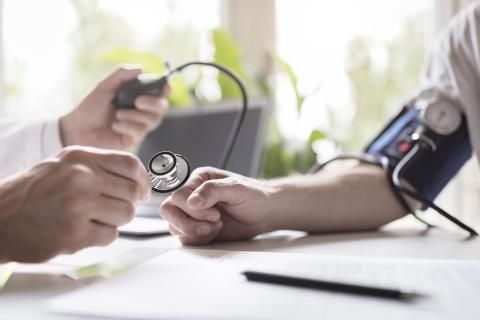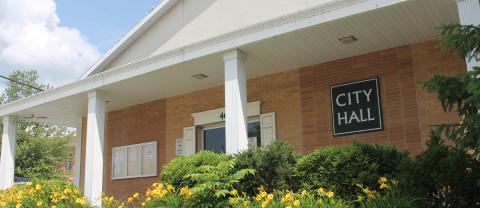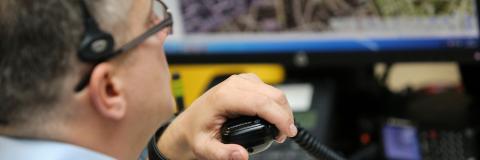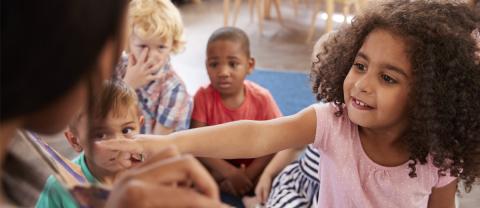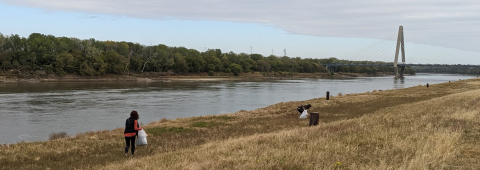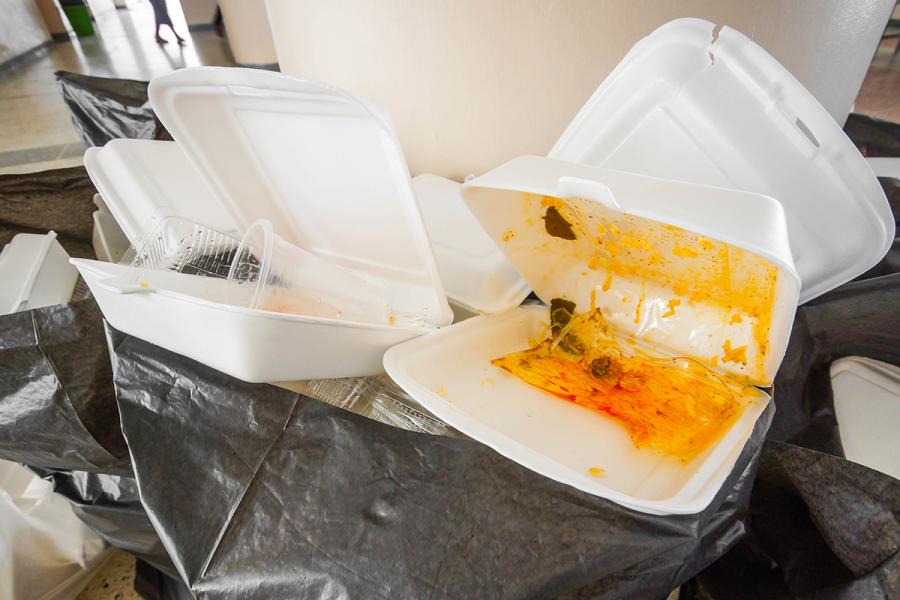Number 1: Shipping materials
Cardboard boxes can be recycled both at curbside and at drop-off recycling centers. Air pillows, bubble wrap and shipping envelopes can be recycled with your plastic shopping bags at grocery stores and big box stores such as Target and Walmart. Always deflate air pillows and bubble wrap before recycling.
Number 2: Electronics (e-waste)
Anything that runs on a cord or battery is recyclable. This includes items such TVs, computers, smart phones, hair dryers, coffee makers, flashlights and watches. The following businesses accept e-waste: Best Buy, Office Depot/Office Max, Staples and Midwest Recycling Center. Always call first, as accepted items vary among businesses. E-waste cannot go in your curbside recycling bin.
Number 3: Food waste
Never put food in your recycling bin. Paper food containers, disposable tableware, frozen food containers, takeout boxes, fast food containers and paper coffee cups can’t go in the bin, either. These items aren’t recyclable because they are coated with a thin layer of plastic.
Number 4: Hazardous waste
Expired, unwanted, or unused prescriptions and medicines can be disposed of at your local police station or pharmacy such as CVS or Walgreens.
Medical sharps such as needles should be put into a tightly closed, puncture-resistant container such as a detergent bottle and placed in your trash. There are also mail-back programs available.
Household hazardous waste (HHW) is any item with Danger, Warning or Caution on the label. This includes paint, automotive fluids, lawn and garden chemicals, pesticides, cleaners, batteries, fluorescent bulbs and many beauty products. HHW can be properly disposed through your local HHW program.
Personal hygiene items such as diapers and toilet paper are not recyclable. Diapers belong in the trash, toilet paper in the toilet.
None of these hazardous items are accepted in your recycling bin.
Number 5: Plastics
Most plastic bottles and containers with numbers 1-7 on the bottom are recyclable. Exceptions include Styrofoam food and drink containers and hazardous substance containers – automotive fluid, pesticides, etc. These are not recyclable in the Kansas City area due to their low value and high contamination.
Many plastic bags and film are recyclable and should be taken to a grocery store or big box store such as Walmart or Target. Plastic bags and film are not accepted in your recycling bin.

